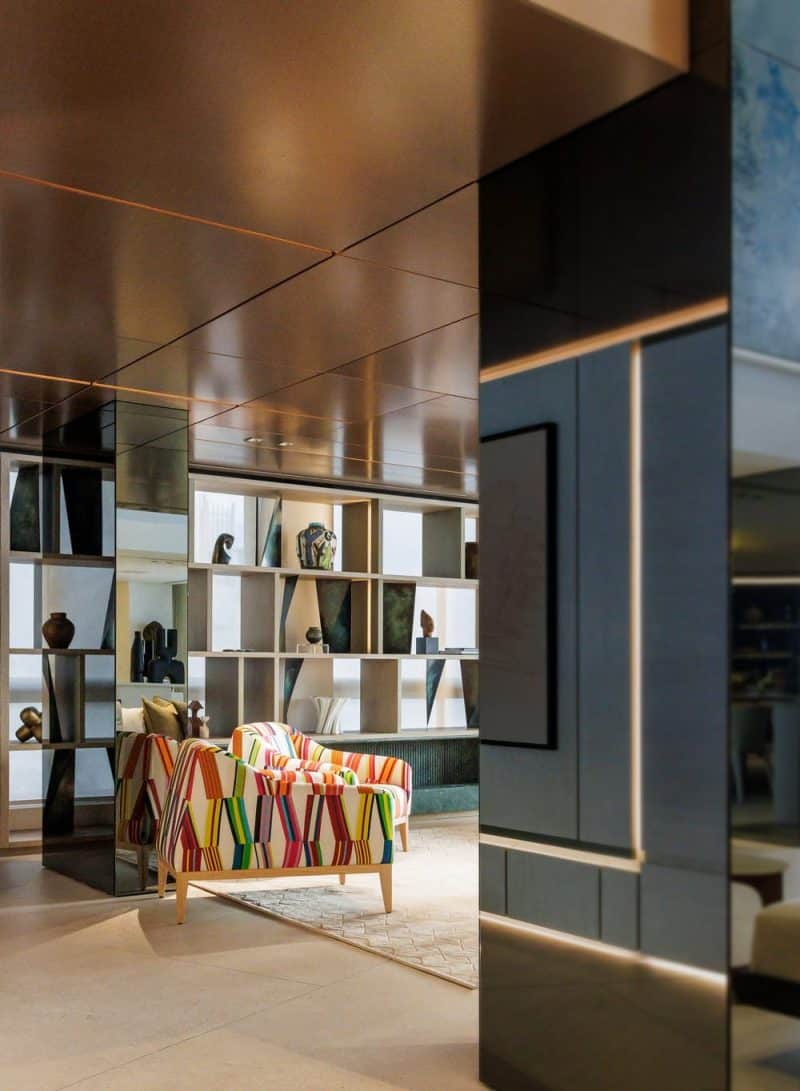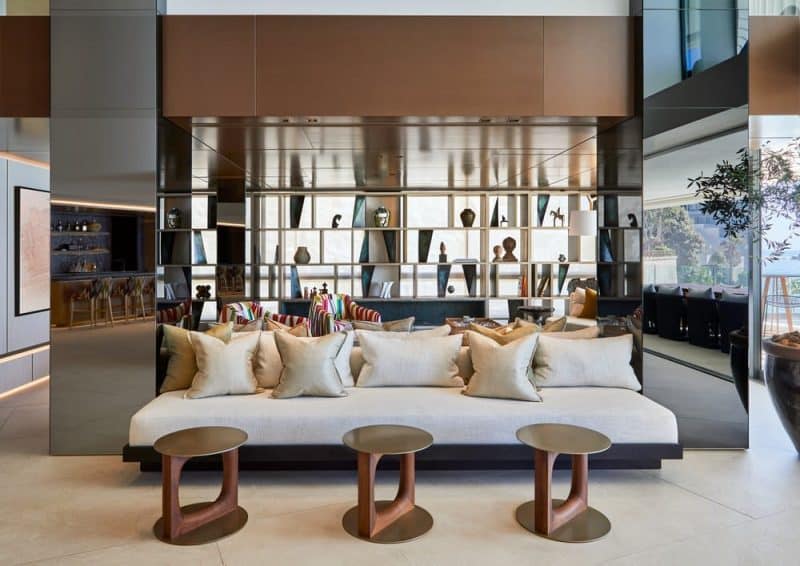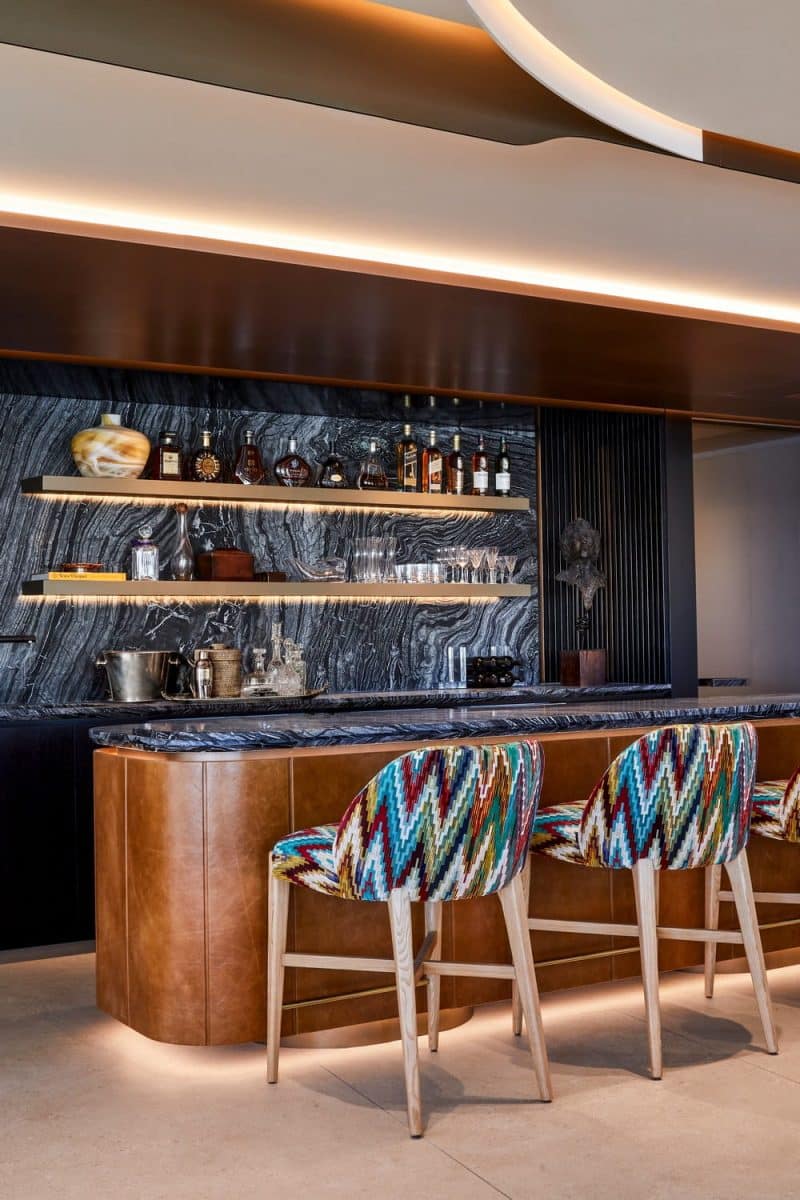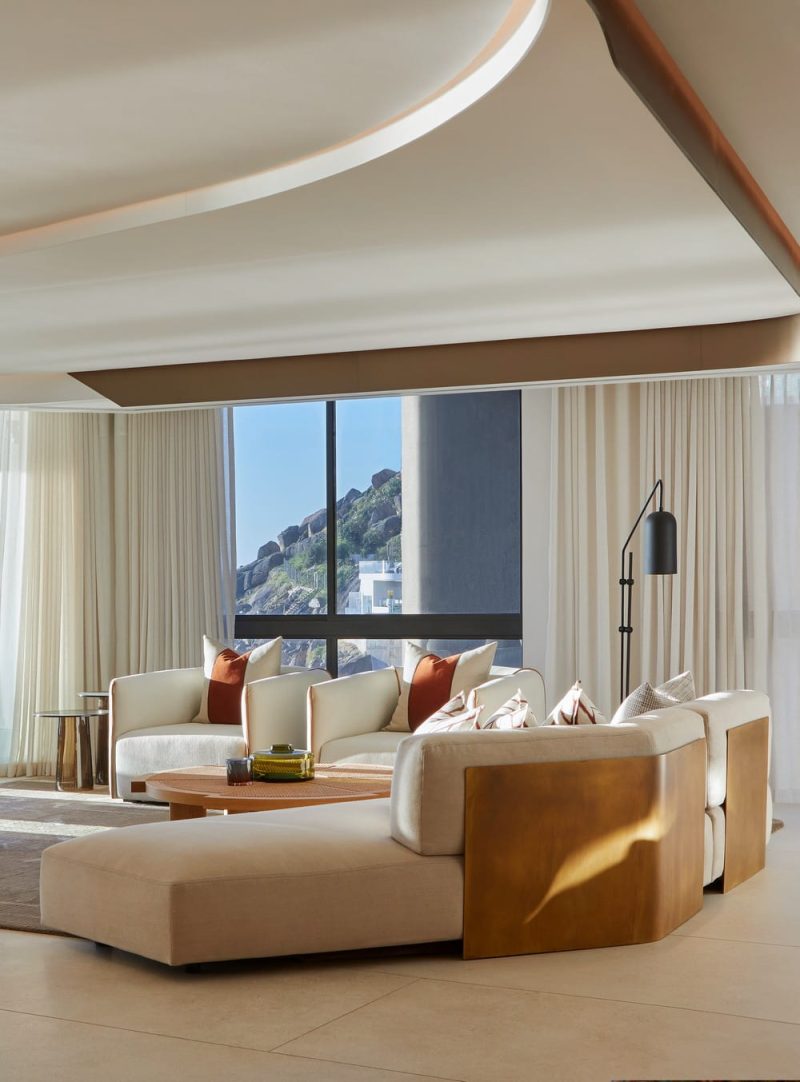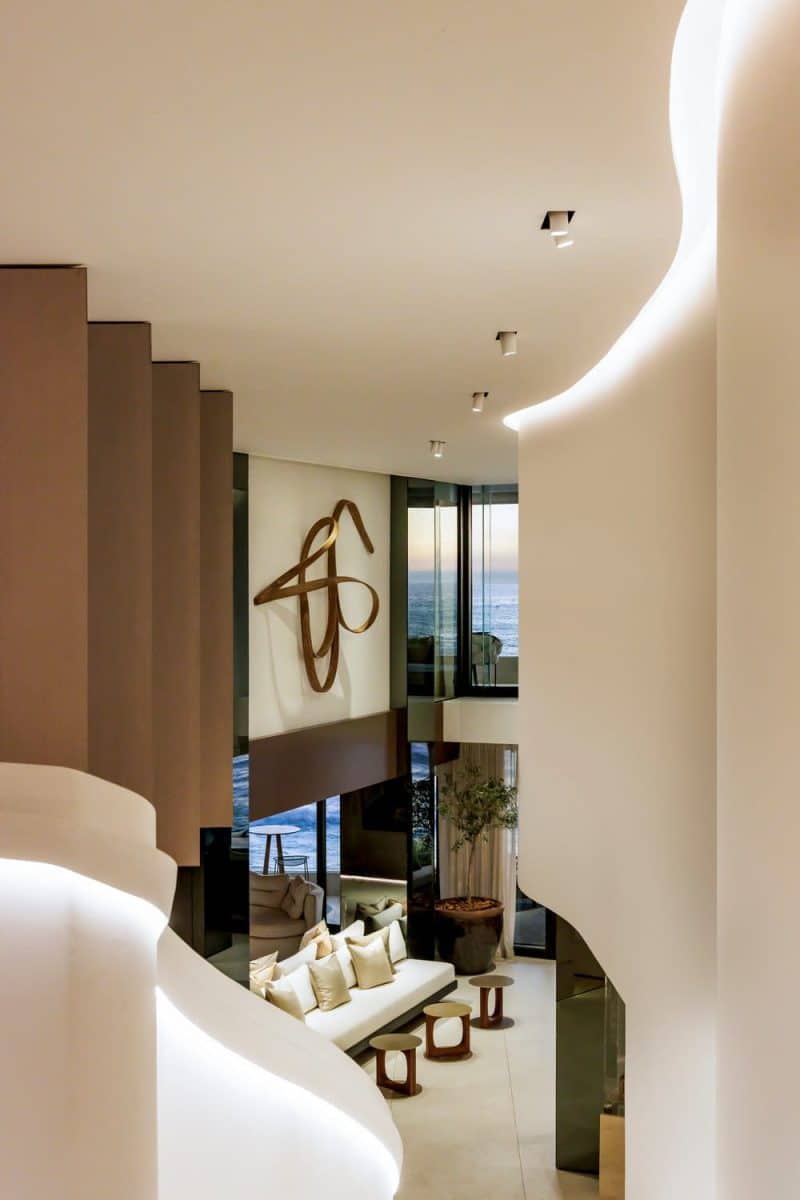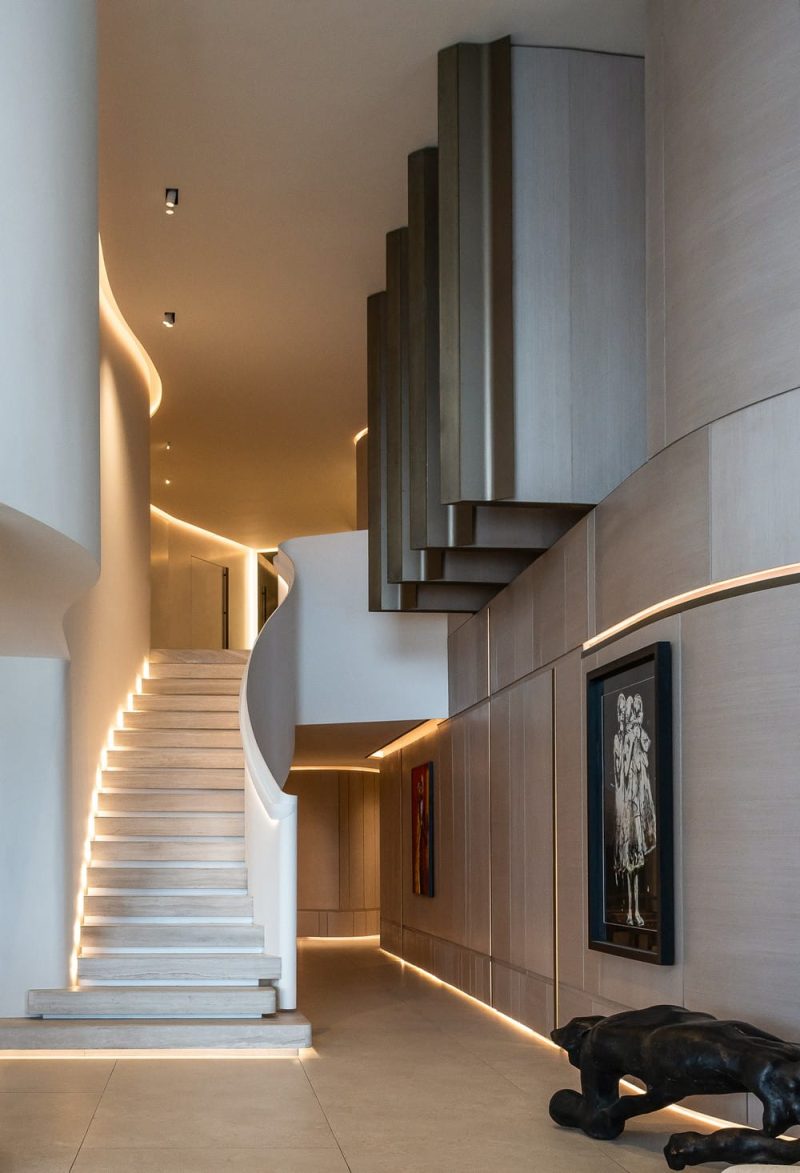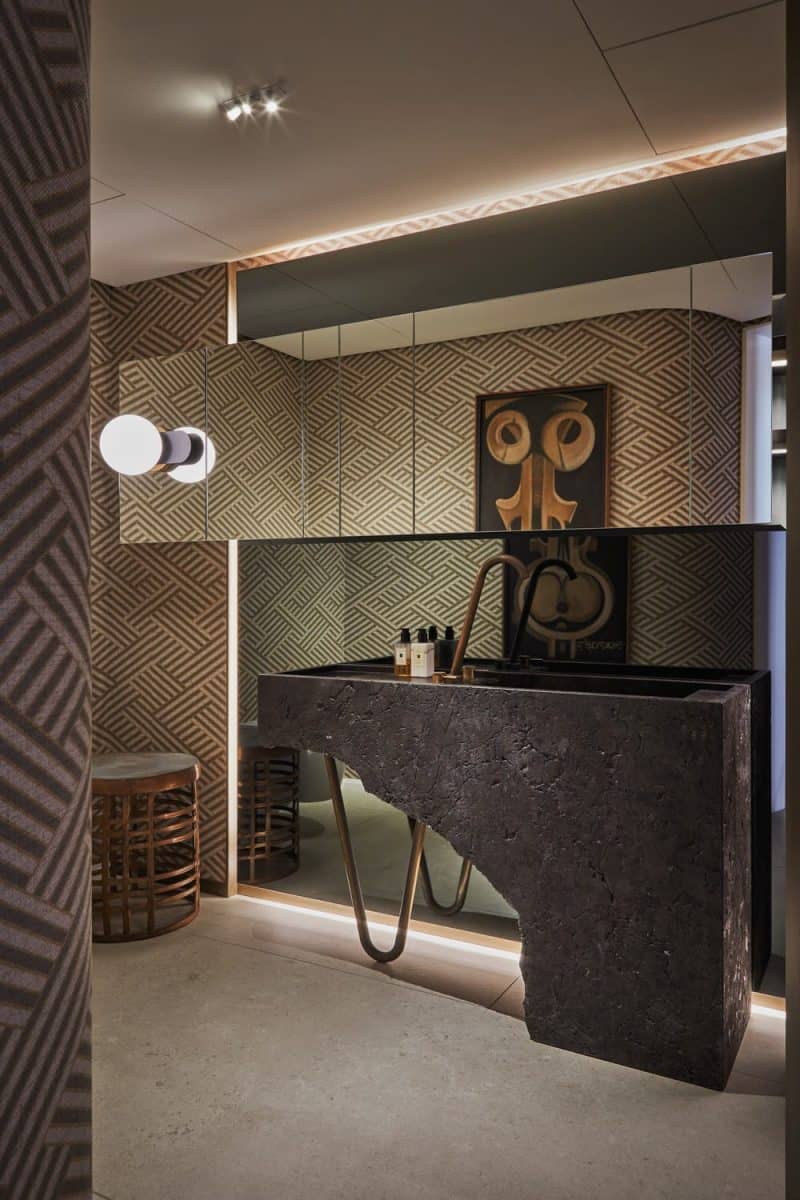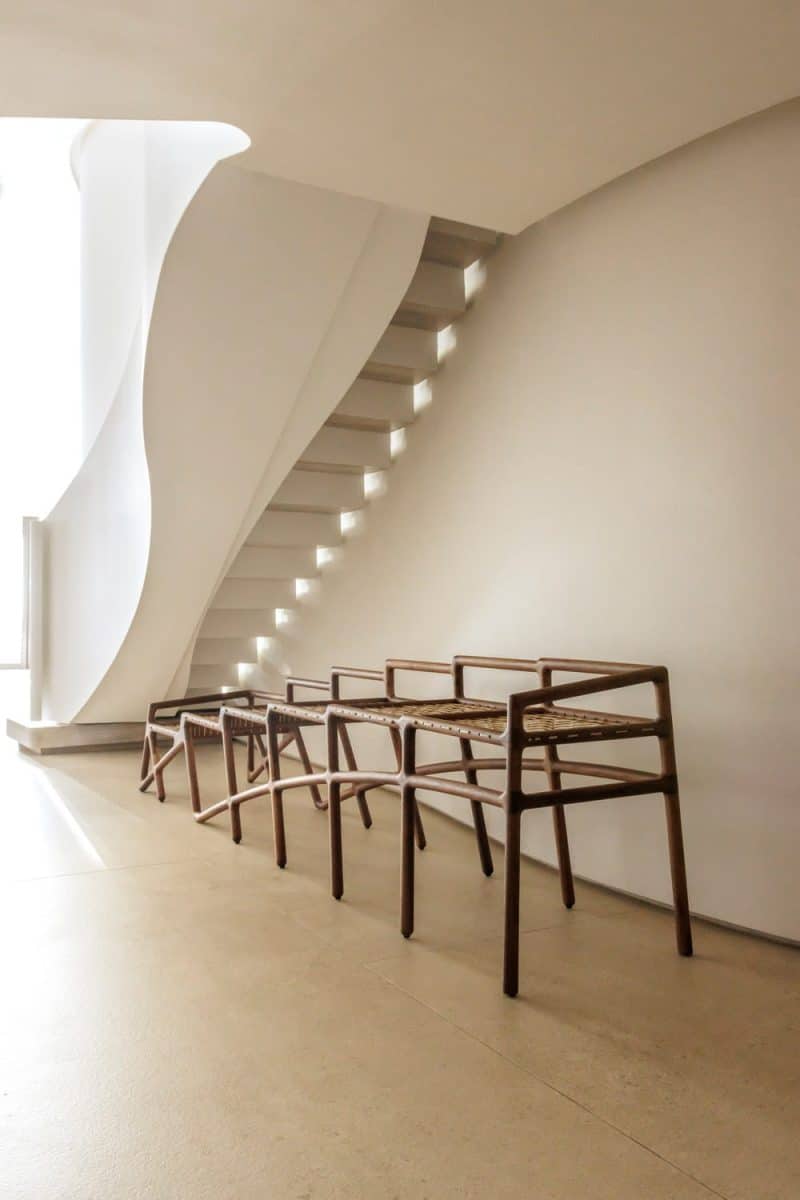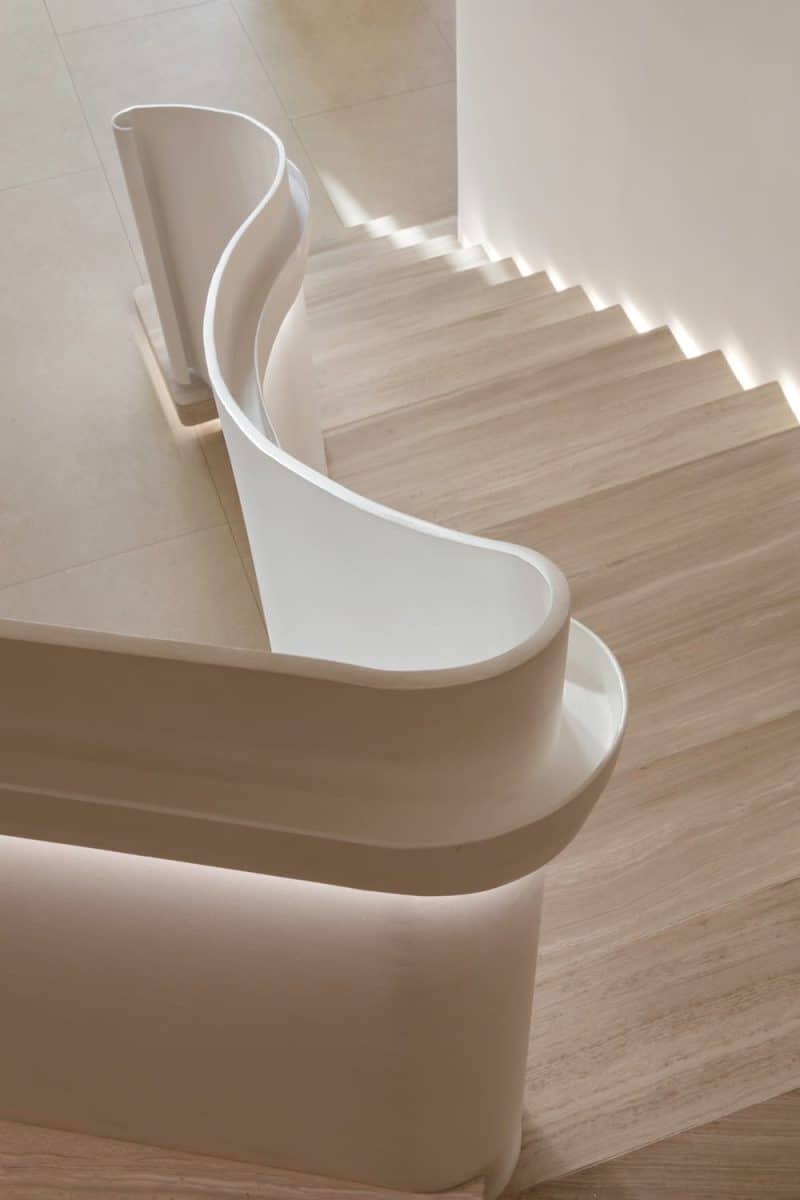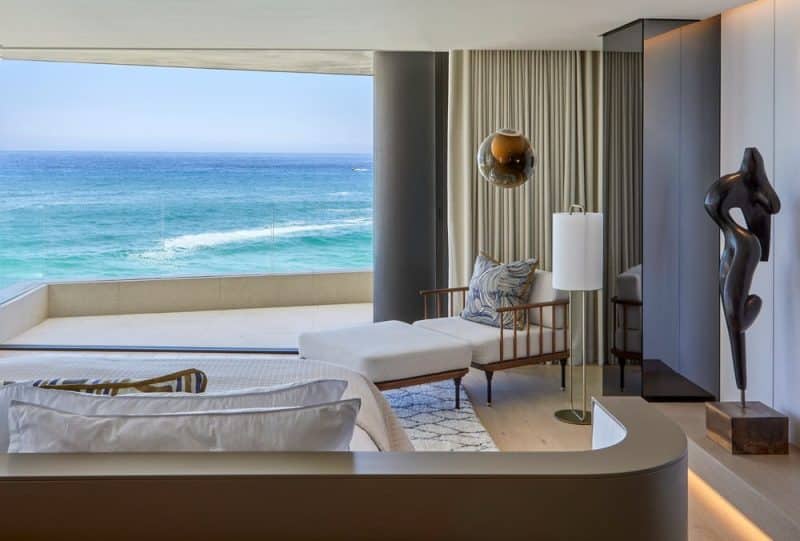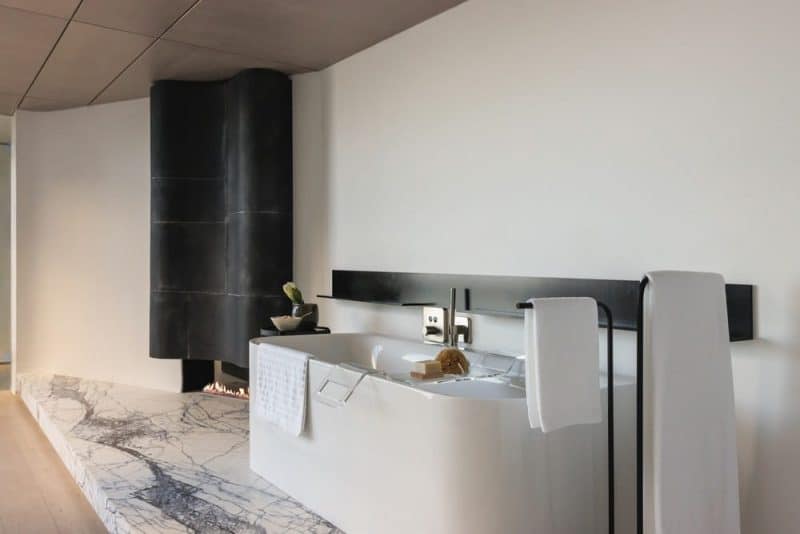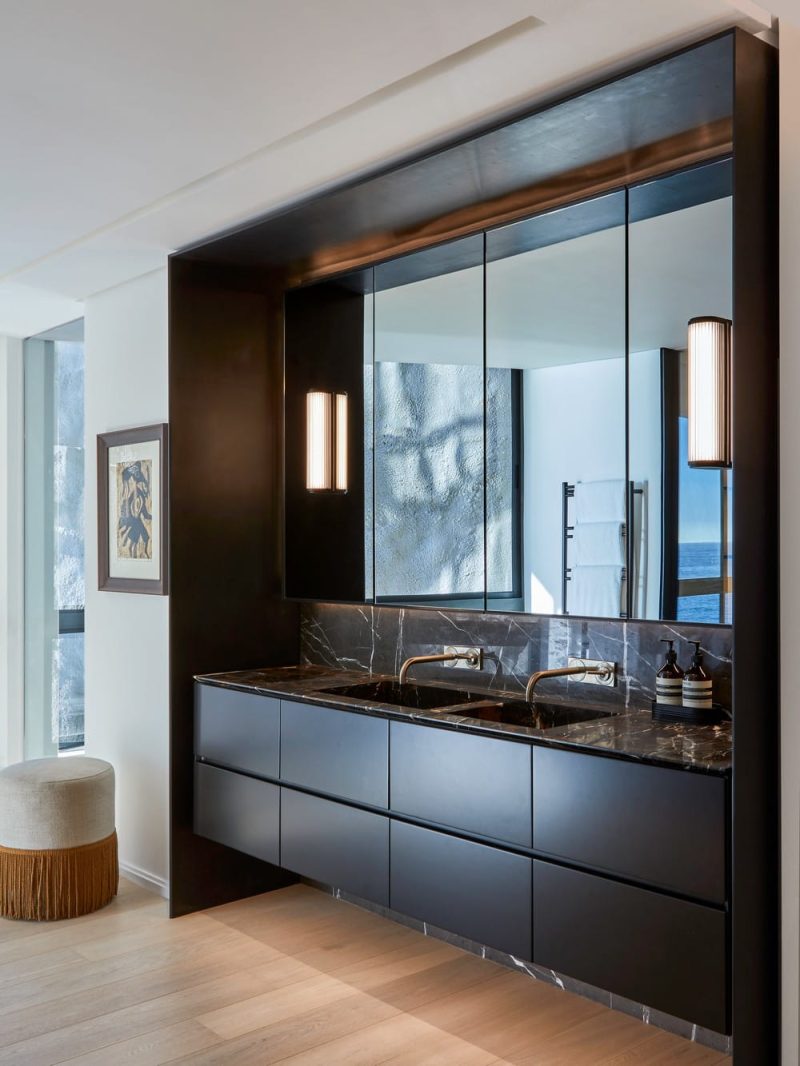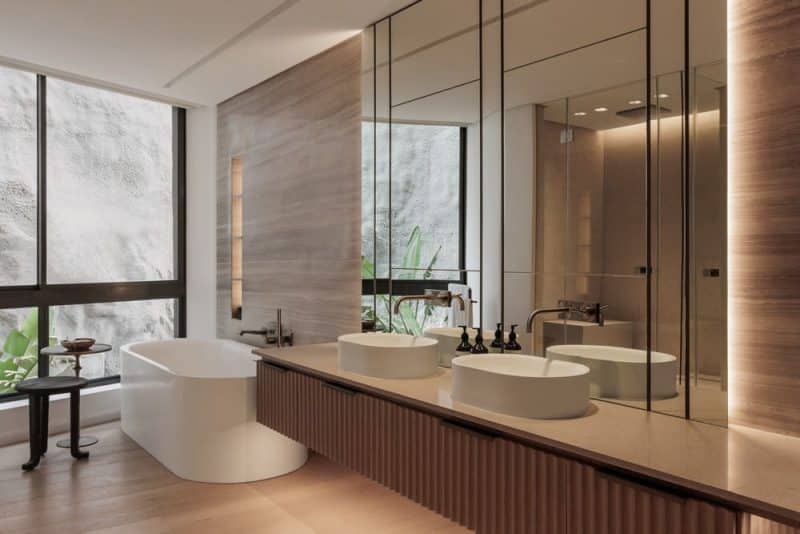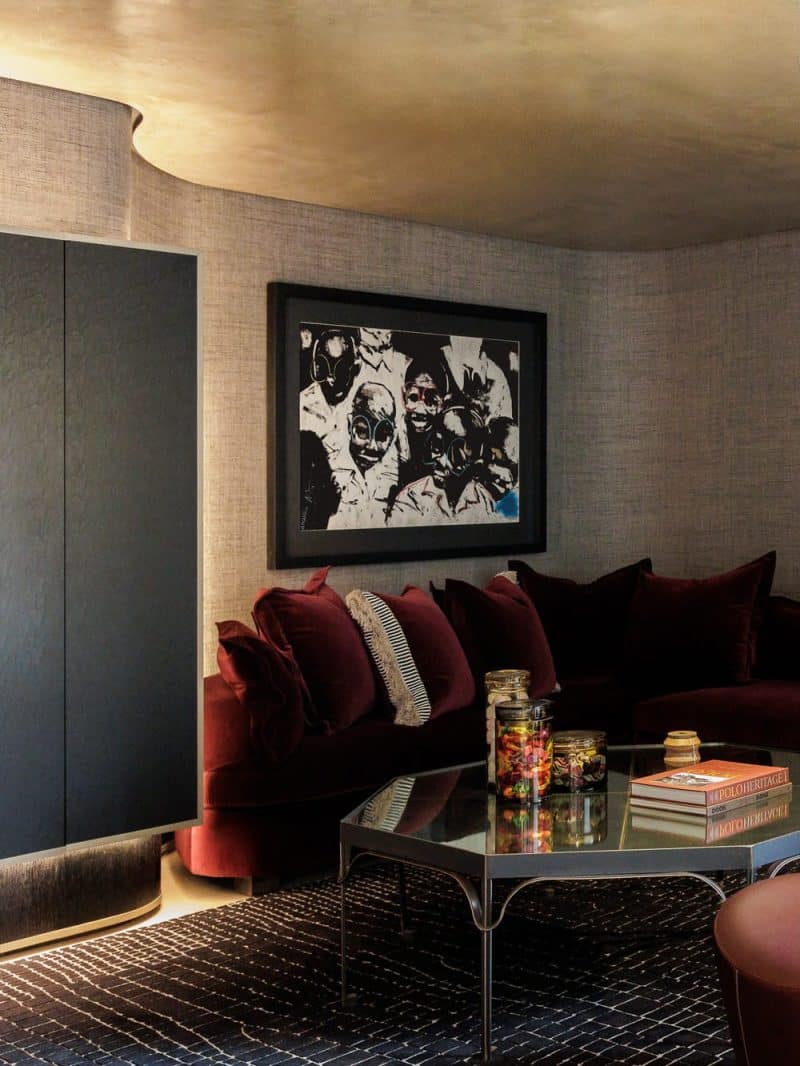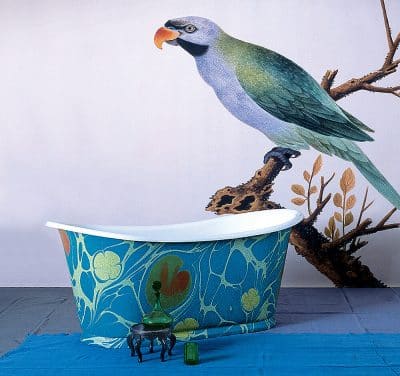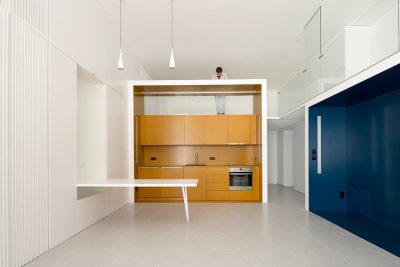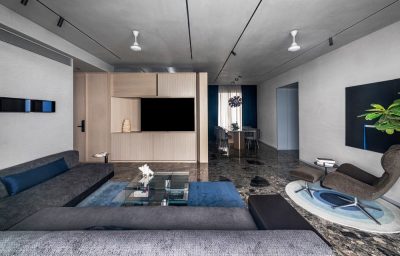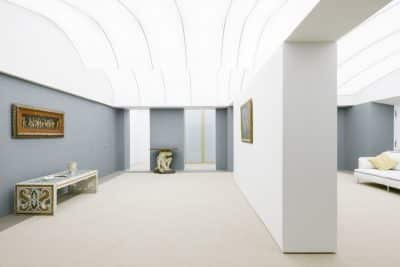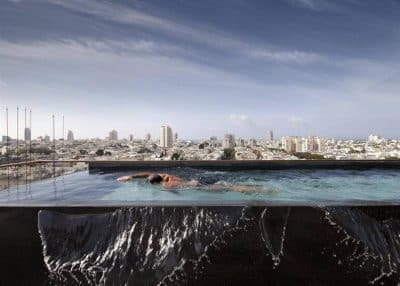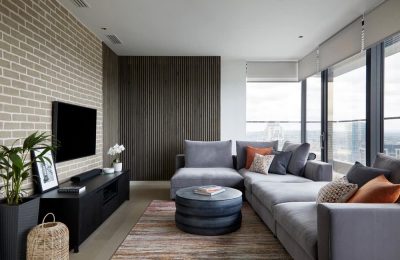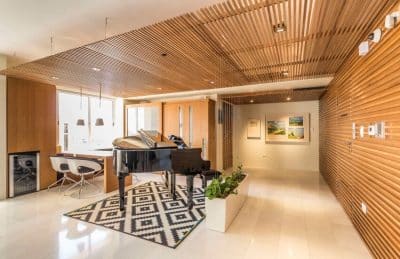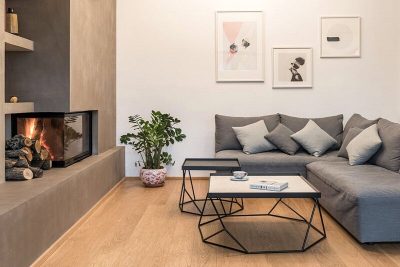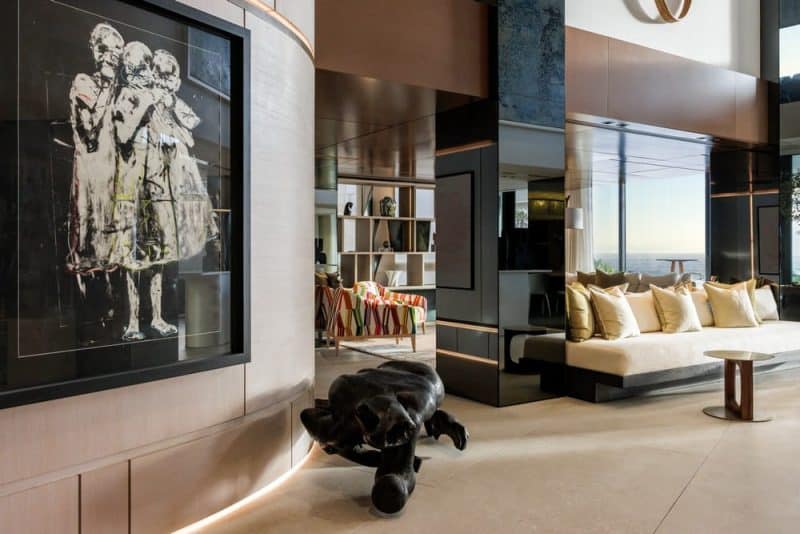
Project: Waterside Apartment
Architecture: ARRCC
Interior Designer Team: Michele Rhoda, Leigh Daniels, Daniel Du Toit, AnnaLisa Cunningham Cooper, Maajidah Sait, Raeesah Omar
Interior Decor Team: Karen Stanek Design
Location: Cape Town, South Africa
Year: 2023
Photo Credits: Greg Cox, Emma Jackson
Waterside Apartment, situated in a nine-story beachside building in Clifton, Cape Town, seamlessly blends innovative design with natural beauty. Originally designed by SAOTA in 2009, the interior design studio ARRCC, in collaboration with Karen Stanek from KS Designs, undertook the challenge of merging three apartments over two levels. As a result, they created a stunning space that redefines luxury living by the sea.
Redefining the Floorplan
ARRCC’s primary goal was to redevelop and unify the floorplan, with a special focus on the entrance. To achieve this, they removed the slab towards the front of the apartments, creating a fully glazed, double-volume central living space. This design opens up onto a sea-facing balcony, allowing natural light to flood the interior and offering breathtaking ocean views.
Creating a Grand Entrance
They relocated the grand entrance to the top floor, providing a unique spatial experience. The entrance overlooks the central living space and offers glimpses of the ocean beyond. Moreover, the sinuous staircase and undulating walls at the entrance draw inspiration from the boulders on the beach and the contours of the cliffside. These design elements enhance the flow, orientation, and integration of spaces throughout the apartment.
Master Suite and En Suite Bedrooms
The master suite on the top level functions as a self-contained wing. Louvers can incorporate this wing into the rest of the apartment, unlocking additional views. On the lower level, four en suite bedrooms ensure access to natural light. This level also includes a central lounge, dining room, front- and back-of-house kitchens, a bar lounge, and a separate TV lounge.
Integrating Support Columns and Natural Materials
They seamlessly integrated previously obstructive support columns into the interior architecture. These columns hold spaces and frame views, making their presence barely noticeable. Additionally, they modulate the relationship between the double-volume space and more intimate areas, such as the library and dining room.
To evoke the surrounding environment, designers selected natural materials such as marble and timber. Features like the wave-like wall at the entrance use simple plaster and paint to emphasize their form. The bedrooms and bathrooms feature calm, sophisticated neutrals, including limed oak and a classic combination of black-and-white marble. In contrast, the social spaces showcase pops of color and pattern.
Innovative Lighting and Furnishings
The timber wall cladding accommodates concealed lighting, accentuating it as a feature throughout the day. By concealing light fittings and other services wherever possible, and including strip lighting, the designers maintain the seamless continuity of the timber interior.
Guided by KS Designs and the client’s keen eye for design, the interiors use materials like smoky mirror, oxidized copper, and green marble to evoke the seashore’s hues and textures. The spectacular “Fire + Ice” lighting piece by Stephen Pikus, which incorporates recycled glass, adds a unique touch. Custom-designed furnishings, such as the dining table by OKHA and the ribbon-like wall installation by Louw Roets, deepen the dialogue between forms. Soft furnishings offset shell and coastal elements, creating a delicate balance of richness and restraint.
Conclusion
Waterside Apartment successfully combines modern design with natural elements, creating a space that is both innovative and harmonious. The understated backdrop highlights the owner’s curated collection of contemporary art. Consequently, the cohesive design elements create a powerful and compelling response to place, space, and user experience. This project exemplifies how thoughtful design can transform and elevate living spaces, making them not only functional but also deeply connected to their environment.
